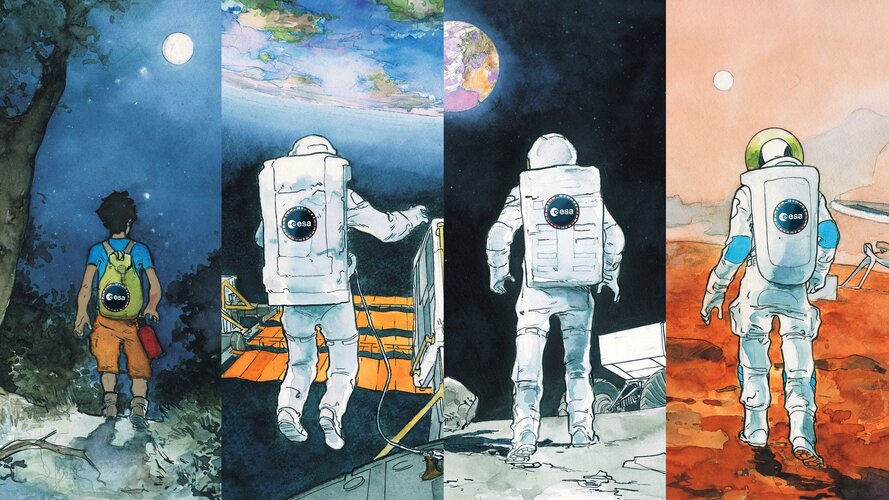Novel NASA instrument sets sights on earthbound solar radiation
Tuesday, 05 July 2022 12:33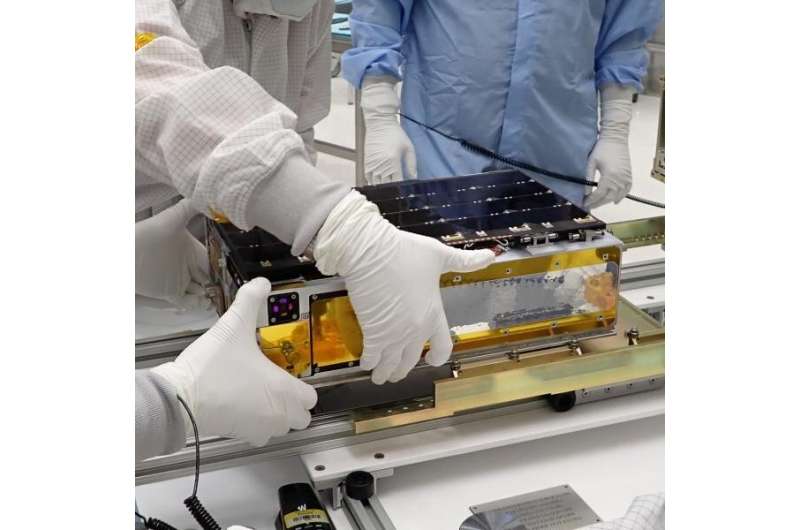
A very small instrument has a big job ahead of it: measuring all Earth-directed energy coming from the sun and helping scientists understand how that energy influences our planet's severe weather, climate change and other global forces.
About the size of a shoebox or gaming console, the Compact Total Irradiance Monitor (CTIM) is the smallest satellite ever dispatched to observe the sum of all solar energy Earth receives from the sun—also known as "total solar irradiance."
Total solar irradiance is a major component of the Earth radiation budget, which tracks the balance between incoming and outgoing solar energy. Increased amounts of greenhouse gases emitted from human activities, such as burning fossil fuels, trap increased amounts of solar energy within Earth's atmosphere.
Northrop Grumman selects Airbus to supply satellite buses for U.S. military constellation
Tuesday, 05 July 2022 12:30
Airbus U.S. Space and Defense will produce 42 satellite buses for the Space Development Agency's Transport Layer Tranche 1
The post Northrop Grumman selects Airbus to supply satellite buses for U.S.
Kongsberg to acquire NanoAvionics; AST SpaceMobile sells stake
Tuesday, 05 July 2022 11:12 Kongsberg Defence and Aerospace (Kongsberg) has entered into an agreement to acquire Lithuanian smallsat mission integrator and bus manufacturer NanoAvionics. The planned acquisition expands Kongsberg's space offering to also have products and technology for manufacturing small satellites.
NanoAvionics is a leading smallsat mission integrator and bus manufacturer with significant global gr
Kongsberg Defence and Aerospace (Kongsberg) has entered into an agreement to acquire Lithuanian smallsat mission integrator and bus manufacturer NanoAvionics. The planned acquisition expands Kongsberg's space offering to also have products and technology for manufacturing small satellites.
NanoAvionics is a leading smallsat mission integrator and bus manufacturer with significant global gr Rocket Lab Moon Mission for NASA a Success
Tuesday, 05 July 2022 11:12 Rocket Lab USA, Inc. (Nasdaq: RKLB) has successfully deployed a pathfinding satellite for NASA, setting it on a course to the Moon. The deployment marks the successful completion of Rocket Lab's first deep space mission, paving the way for the Company's upcoming interplanetary missions to Mars and Venus.
Owned and operated by Advanced Space on behalf of NASA, the Cislunar Autonomous Positi
Rocket Lab USA, Inc. (Nasdaq: RKLB) has successfully deployed a pathfinding satellite for NASA, setting it on a course to the Moon. The deployment marks the successful completion of Rocket Lab's first deep space mission, paving the way for the Company's upcoming interplanetary missions to Mars and Venus.
Owned and operated by Advanced Space on behalf of NASA, the Cislunar Autonomous Positi Shedding light on comet Chury's unexpected chemical complexity
Tuesday, 05 July 2022 11:12 A team of researchers led by the University of Bern has for the first time identified an unexpected richness of complex organic molecules at a comet. This was achieved thanks to the analysis of data collected during ESA's Rosetta mission at comet 67P/ChuryumovGerasimenko, also known as Chury. Delivered to the early Earth by impacting comets, these organics may have helped to kick-start carbon-ba
A team of researchers led by the University of Bern has for the first time identified an unexpected richness of complex organic molecules at a comet. This was achieved thanks to the analysis of data collected during ESA's Rosetta mission at comet 67P/ChuryumovGerasimenko, also known as Chury. Delivered to the early Earth by impacting comets, these organics may have helped to kick-start carbon-ba Turion Space and Exolaunch announce launch agreement for DROID 001 aboard Falcon 9
Tuesday, 05 July 2022 11:12 US Company Turion Space, building spacecraft for space logistics services including space debris removal and space situational awareness data, has selected Exolaunch, a global provider of launch, deployment and integration services for small satellites, to provide launch services for their first DROID spacecraft aboard a Falcon 9 Transporter rideshare mission.
The launch is planned for ear
US Company Turion Space, building spacecraft for space logistics services including space debris removal and space situational awareness data, has selected Exolaunch, a global provider of launch, deployment and integration services for small satellites, to provide launch services for their first DROID spacecraft aboard a Falcon 9 Transporter rideshare mission.
The launch is planned for ear Teleglobal and Kacific complete large-scale deployment of mobile backhaul services
Tuesday, 05 July 2022 11:12 Kacific Broadband Satellites Group (Kacific) has successfully partnered with PT Indo Pratama Teleglobal ("Teleglobal") in Indonesia to provide a large-scale deployment of mobile backhaul services to major telecommunications operators.
Over the last year, the pair have connected hundreds of base sites across the Indonesian territory, capable of 4G services, to Kacific's high-throughput Ka-b
Kacific Broadband Satellites Group (Kacific) has successfully partnered with PT Indo Pratama Teleglobal ("Teleglobal") in Indonesia to provide a large-scale deployment of mobile backhaul services to major telecommunications operators.
Over the last year, the pair have connected hundreds of base sites across the Indonesian territory, capable of 4G services, to Kacific's high-throughput Ka-b Terran Orbital completes NASA Pathfinder TD 3 bus commissioning
Tuesday, 05 July 2022 11:12 Terran Orbital Corporation (NYSE: LLAP) reports that its Pathfinder Technology Demonstrator 3 (PTD-3) satellite has completed bus commissioning with all health and status checkouts nominal. Terran Orbital designed and built the PTD-3 satellite in support of NASA's PTD series of missions.
The missions will test the operation of a variety of novel small satellite technologies in low-Earth or
Terran Orbital Corporation (NYSE: LLAP) reports that its Pathfinder Technology Demonstrator 3 (PTD-3) satellite has completed bus commissioning with all health and status checkouts nominal. Terran Orbital designed and built the PTD-3 satellite in support of NASA's PTD series of missions.
The missions will test the operation of a variety of novel small satellite technologies in low-Earth or NTU Singapore successfully launches its 10th satellite into space
Tuesday, 05 July 2022 11:12 Singapore's latest satellite, designed and built by students from Nanyang Technological University, Singapore (NTU Singapore), is now successfully orbiting around Earth, having launched yesterday (30 Jun 2022) on an Indian Space Research Organisation Polar Satellite Launch Vehicle.
The latest NTU satellite, named SCOOB-I, is the first of the new Student Satellite Series (S3-I) to be launch
Singapore's latest satellite, designed and built by students from Nanyang Technological University, Singapore (NTU Singapore), is now successfully orbiting around Earth, having launched yesterday (30 Jun 2022) on an Indian Space Research Organisation Polar Satellite Launch Vehicle.
The latest NTU satellite, named SCOOB-I, is the first of the new Student Satellite Series (S3-I) to be launch Virgin Orbit launches 'Straight Up' mission for US Space Force
Tuesday, 05 July 2022 11:12 Virgin Orbit (Nasdaq: VORB) has confirmed the success of its fourth consecutive satellite launch mission. This launch, named Straight Up, carried seven satellites to Low Earth Orbit for the United States Space Force (USSF), who procured this launch for the Rocket Systems Launch Program, with payloads provided by the Department of Defense Space Test Program (STP). In support of its mission partne
Virgin Orbit (Nasdaq: VORB) has confirmed the success of its fourth consecutive satellite launch mission. This launch, named Straight Up, carried seven satellites to Low Earth Orbit for the United States Space Force (USSF), who procured this launch for the Rocket Systems Launch Program, with payloads provided by the Department of Defense Space Test Program (STP). In support of its mission partne Kongsberg to acquire majority stake in NanoAvionics
Tuesday, 05 July 2022 10:32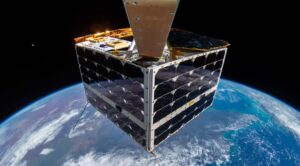
Norwegian company Kongsberg Defence & Aerospace will acquire a majority stake in NanoAvionics in a deal that values the smallsat manufacturer at 65 million euros ($67 million).
The post Kongsberg to acquire majority stake in NanoAvionics appeared first on SpaceNews.
How to see Webb’s new images
Tuesday, 05 July 2022 08:30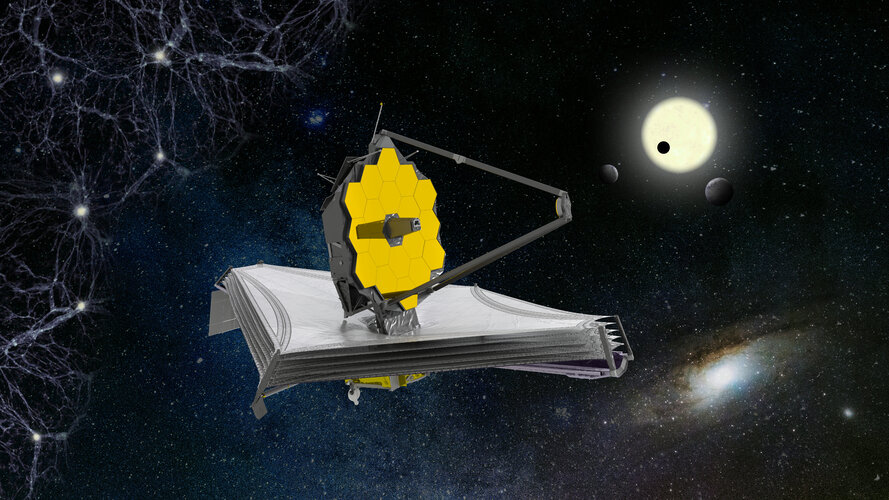
As excitement mounts for the unveiling of Webb’s first full-colour images on Tuesday 12 July, here’s how to participate in the global celebration via ESA’s channels. Choose from watching a livestream, attending an in-person event, or joining our social media activities.
Terrae Novae: Earth orbit, Moon and Mars
Tuesday, 05 July 2022 07:00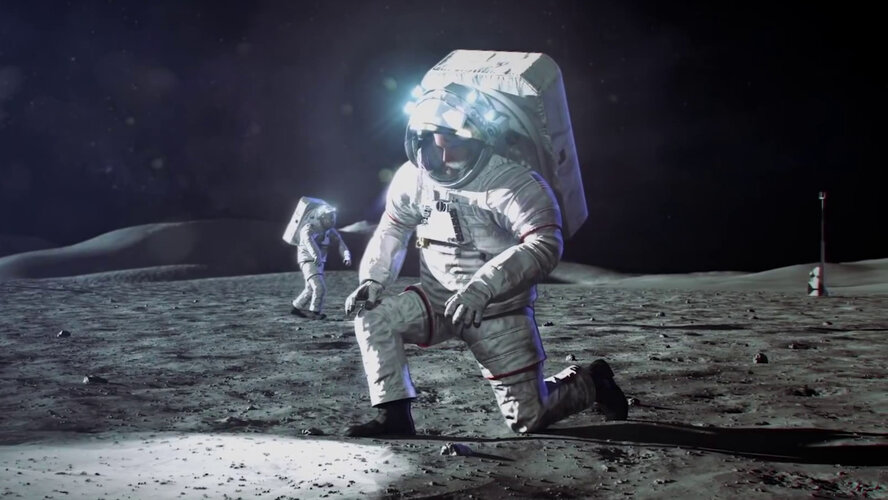 Video:
00:02:18
Video:
00:02:18
Terrae Novae is ESA’s exploration programme.
Terrae Novae is not only literally about exploring new worlds, but by describing the limitless opportunities for discovery, economic growth and inspiration it also expresses our ambitions for Europe’s future innovators, scientists and explorers.
This video shows the many exploration activities ESA is conducting or has planned in our Solar System, from the International Space Station to the Moon with the European Service Module and lunar Gateway modules for Artemis, and on to Mars with the Mars Sample Return campaign.
For more on ESA’s human and robotic exploration strategy see: https://www.esa.int/terraenovae
From Earth orbit to the Moon and Mars: ESA’s exploration roadmap for space autonomy and leadership
Monday, 04 July 2022 14:25